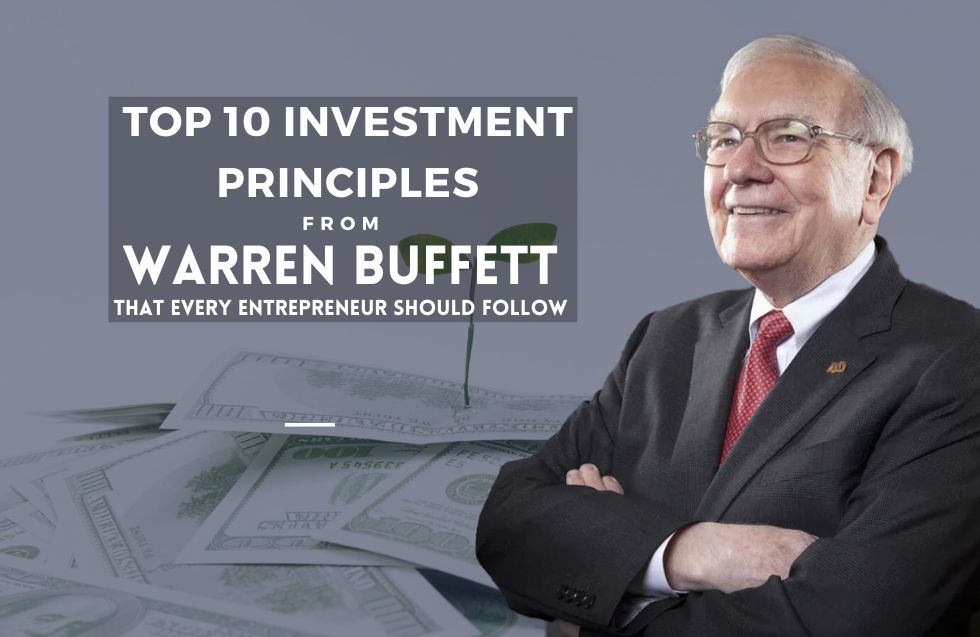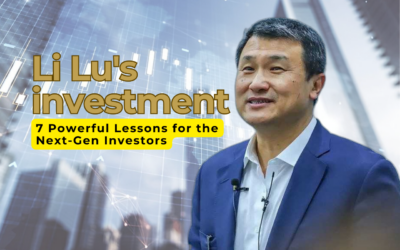Warren Buffett, often called the “Oracle of Omaha,” has solidified his place as one of the most successful and revered investors of all time. His investment philosophies, rooted in simplicity and patience, have not only withstood the test of time but also serve as guiding principles for entrepreneurs looking to build sustainable and profitable businesses. Here are the top 10 investment principles from Warren Buffett that every entrepreneur should follow:
1. Invest in What You Understand
Buffett’s approach to investing only in businesses he comprehends is grounded in minimizing risk. For entrepreneurs, this means that diving into ventures outside their expertise can lead to uninformed decisions and increased risks. When entrepreneurs understand their market, customer needs, and competition, they make more confident and informed choices that drive strategic growth. For instance, a tech entrepreneur focusing on app development should avoid suddenly entering the healthcare sector without extensive research or partnering with experts.
2. Value Over Price
Warren Buffett has often said, “Price is what you pay, value is what you get.” This principle encourages entrepreneurs to look beyond immediate profit margins or flashy metrics and focus on the underlying value of their business. For example, investing in R&D, enhancing customer experiences, and strengthening brand equity might not show immediate financial returns but can significantly increase a company’s intrinsic value over time. This mindset helps in building a solid foundation for long-term success.
3. Stay Patient and Think Long-Term
Buffett’s patience is legendary; he holds onto investments for years, even decades. Entrepreneurs can apply this principle by resisting the urge for instant gratification or quick exits. Building a successful business often requires years of hard work, persistence, and adapting to challenges. By having a long-term vision, entrepreneurs can make decisions that benefit the company in the long run, such as developing scalable solutions, nurturing customer relationships, and investing in employee development.
4. Reinvest Your Profits
Buffett’s philosophy of reinvesting profits contributes to exponential growth over time. Entrepreneurs should adopt this strategy by putting profits back into their business to fuel growth, rather than taking large payouts. For example, reinvested earnings could be used for hiring skilled talent, enhancing technology infrastructure, or expanding marketing efforts. These investments not only strengthen the company but also position it to capture larger market share and innovate continually.
5. Avoid Debt as Much as Possible
While some entrepreneurs see debt as a tool for growth, Buffett’s conservative approach teaches that debt can also be a double-edged sword. Excessive reliance on debt can lead to financial strain, especially during economic downturns or periods of reduced cash flow. Entrepreneurs should prioritize generating funds internally or through equity when possible, as this strategy preserves flexibility and ensures that debt doesn’t become a burden that impedes growth.
6. Prioritize Quality Management
Warren Buffett looks for competent and ethical management when investing in a company. For entrepreneurs, this underscores the importance of surrounding themselves with a skilled, motivated, and values-driven team. A business leader’s success often hinges on their ability to delegate and trust in their team’s expertise. Entrepreneurs should invest time in hiring, training, and retaining top talent and should foster a culture of collaboration and continuous improvement. Good leadership translates into effective strategy execution and adaptability in challenging times.
7. Stay Focused on Your Core Competencies
Buffett’s reluctance to stray into unfamiliar sectors exemplifies the importance of focus. Entrepreneurs who dilute their attention by chasing too many different opportunities often struggle to excel in any. For instance, a company that starts in software development and then tries to simultaneously expand into unrelated fields like apparel or food may spread itself too thin. Staying focused on core competencies allows for deeper innovation, stronger brand identity, and better customer service.
8. Keep Emotions Out of Decision-Making
Warren Buffett calm demeanor in the face of market volatility is a hallmark of his success. For entrepreneurs, this principle means not letting emotions dictate decisions, especially under stress or during uncertain times. Emotional decisions can lead to rash moves, such as panic-selling assets, signing off on poor deals, or responding negatively to competition. Instead, data-driven decisions based on facts and solid analysis help maintain a clear strategic direction and avoid costly mistakes.
9. Continuous Learning
Warren Buffett is a voracious reader, spending hours every day absorbing information. This habit has contributed significantly to his investment prowess. Entrepreneurs can benefit immensely from continuous learning, whether by reading industry reports, attending workshops, or engaging in peer discussions. This commitment helps them stay ahead of market trends, foresee challenges, and make informed adjustments to their business strategies. Lifelong learning fosters adaptability—a critical trait for any successful entrepreneur.
10. Protect Your Reputation
Buffett’s emphasis on integrity reflects his understanding of reputation as an invaluable asset. For entrepreneurs, maintaining transparency, honesty, and ethical practices isn’t just about public perception; it builds trust with customers, partners, and investors. One misstep can damage a company’s credibility and hinder future opportunities. Upholding a solid reputation helps attract loyal customers, build meaningful partnerships, and create a positive work culture that draws top talent.
Additional Insights
Warren Buffett’s principles underscore that success is not just about making money; it’s about creating value, being patient, and committing to ethical practices. Entrepreneurs who embody these values build businesses that are resilient, adaptable, and aligned with long-term goals.
Following Buffett’s approach can help entrepreneurs cultivate a mindset that prioritizes sustainable growth over quick wins, and wisdom over risk. This approach may not always be the fastest path to success, but it is a proven strategy for building lasting businesses that thrive in various market conditions.
Integrating these investment principles into your entrepreneurial journey sets the stage for not just financial success but also personal and professional growth that stands the test of time.
Conclusion
Warren Buffett’s investment principles are not just applicable to stock market investors—they’re valuable lessons for entrepreneurs seeking sustainable success. By investing in what you know, thinking long-term, prioritizing quality, avoiding debt, and maintaining integrity, entrepreneurs can build resilient and prosperous businesses. Embracing these time-tested strategies can pave the way for enduring success and financial growth.
By following these guiding principles from the Oracle of Omaha, entrepreneurs can develop not just businesses but empires built to last.












